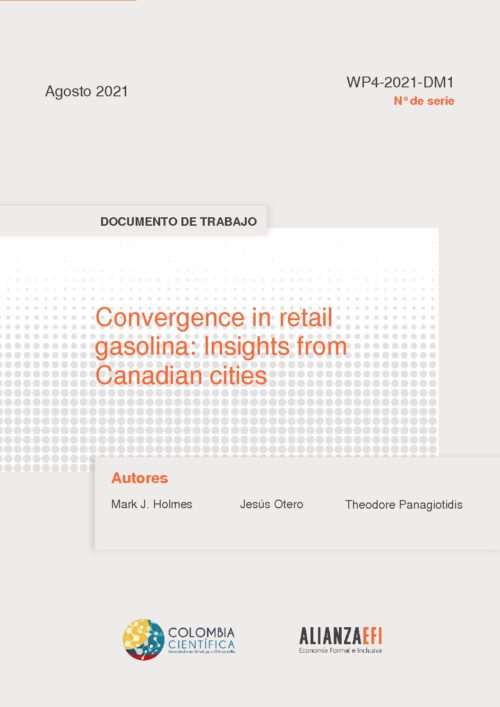This paper investigates the extent of convergence club formation in retail gasoline prices. Our study provides new insights through the use of a large disaggregated panel database for Canada that comprises three types of gasoline grades, namely regular, medium and premium, for a sample of 44 cities over a period of almost two decades. The paper analyses gasoline price data that are inclusive or exclusive of taxes. The findings suggest that the retail gasoline markets are not integrated in terms of requiring multiple numbers of convergence clubs to explain relative price movements across cities. In addition to this, wholesale gasoline prices cities are probably less integrated than retail prices. Key drivers of retail price divergence across cities include distances between cities and the need to be explicit on distinguishing fuel quality. These findings are robust to the inclusion or exclusion of taxes in retail gasoline prices.
Autores:
- Jesús Otero
- Mark Holmes
- Theodore Panagiotidis
Palabras clave:
- Clubs
- Convergence
- Gasoline prices
Categorías:
- Proyecto 4
- Documentos de trabajo
